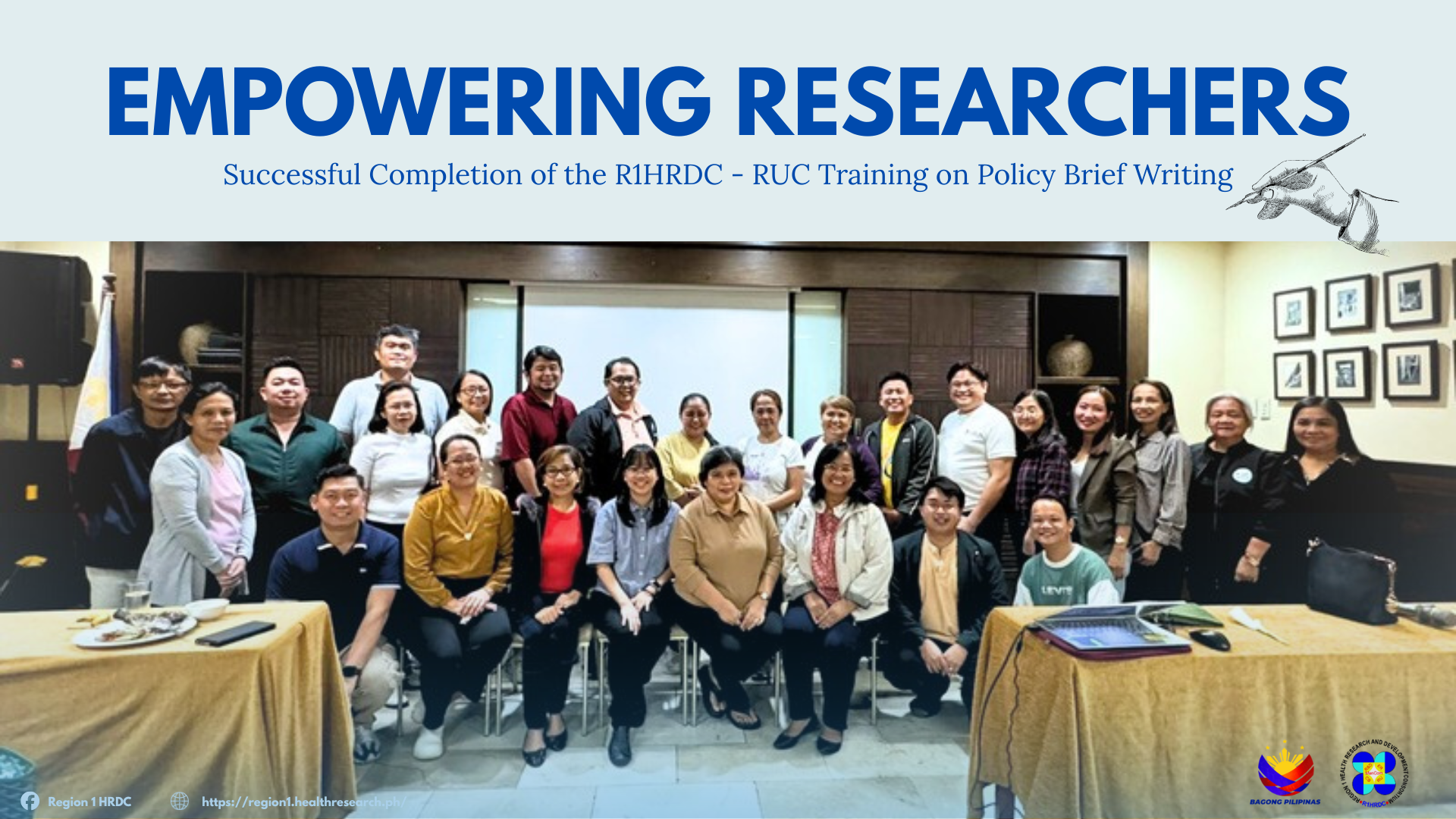To enhance the ability of researchers to transform scientific findings into actionable policies, the Region 1 Health Research and Development Consortium (R1HRDC) - Research Utilization Committee (RUC) successfully held a Training on Policy Brief Writing from September 30 to October 1, 2025, at El Cielito Hotel in Baguio City.
The two-day training aimed to equip participants with essential skills for crafting clear, concise, and evidence-based policy briefs. A total of 35 participants attended, engaging in a blended learning approach that included short lectures, interactive discussions, and hands-on exercises designed to make the sessions both practical and engaging.
Day 1 focused on the fundamentals of policy brief writing. Participants learned to define a policy brief, identify its purpose and target audience, including policymakers, legislators, and other stakeholders, and analyze examples of both effective and ineffective policy briefs. They explored the key components of a policy brief, such as crafting a compelling title, clearly defining the issue and its significance, presenting data-driven evidence, and formulating actionable recommendations. The day concluded with a practical exercise in which participants outlined a policy brief based on a provided case study.
On Day 2, participants delved deeper into the utilization of research and persuasive communication, emphasizing the importance of clarity, tone, and impact in writing. They engaged in activities focused on summarizing key data, developing strong topic sentences and transitions, and tailoring recommendations for different stakeholders. The session also covered design and presentation, ensuring that policy briefs are visually appealing and easy to understand.
The training culminated in a pitch session, where participants presented their final policy briefs, applying the concepts and techniques learned throughout the workshop. The event concluded with an awarding and closing ceremony. Dr. Cynthia P. Lopez presented a certificate of appreciation to guest speaker Ms. Annalie L. Rosales for generously sharing her expertise and valuable insights.
This event not only marked the successful completion of a training program but also signified the beginning of empowering researchers to transform their findings into impactful policy actions that can influence decision-making and drive positive change in the region.

